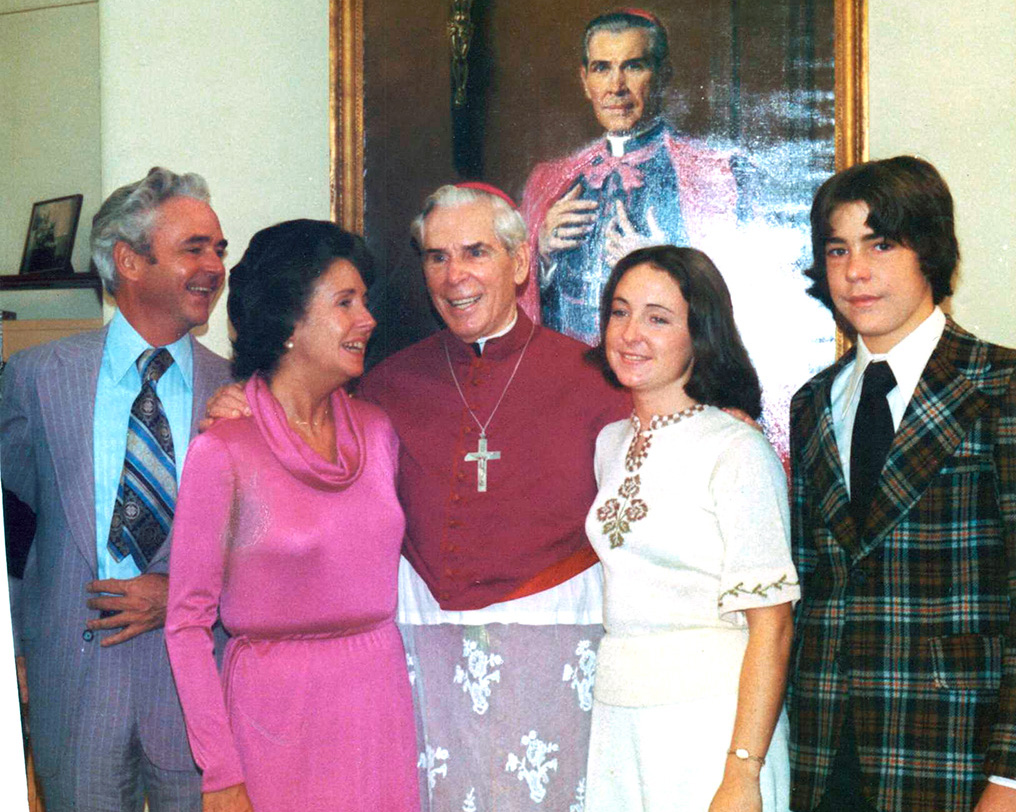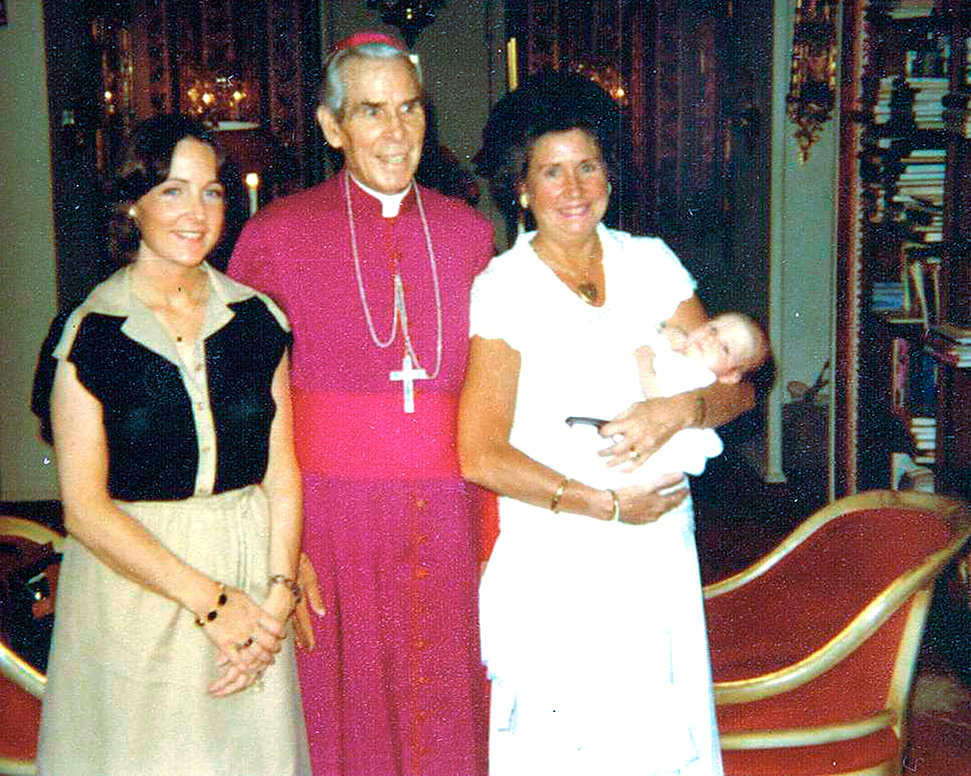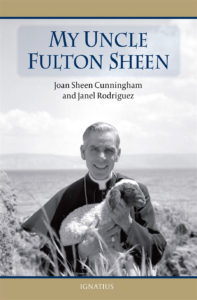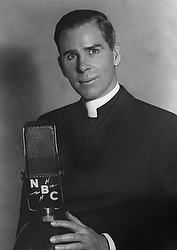

‘My Uncle Fulton Sheen’
Author: Joan Sheen Cunnigham with Janel Rodriguez
Publisher: Ignatius Press website
Publishing Date: Jan. 2, 2020
Length: 144 pp.
Cost: $15.95
WASHINGTON (CNS) — As a child, Joan Sheen Cunningham got to travel with her parents from their Illinois home to visit her uncle, first in Washington, then later in New York City.
Her uncle was Archbishop — then Fr. — Fulton Sheen.
Now 92 years old, Cunningham has written a book recalling the times she spent with her relative, a candidate for sainthood, called “My Uncle Fulton Sheen.”
“My children knew I had done various things while I was growing up, and they thought I should write something about it,” Cunningham told Catholic News Service in an April 1 phone interview from Long Beach Island, New Jersey, where she’s living with her son and daughter-in-law, but she had never gotten around to doing it.
Later, though, someone — she can’t remember who — approached her about writing a book. Cunningham saw a double benefit: “I would do something for my children, and I would do anything to help my uncle,” she said.
In one sense, it’s returning a favor. “I pray to him every day,” Cunningham said, laughing. “For different things that I prayed to him and asked him to pray for, I would have gotten.”
The book, published by Ignatius Press in January, includes lessons she learned from her uncle, whose 20-year nationwide radio broadcast — followed by a hit five-year television series, “Life Is Worth Living” — made him the United States’ most visible priest.

Venerable Archbishop Fulton J. Sheen
Born: May 8, 1895
Ordained: Sept. 20, 1919 for the Diocese of Peoria, Illinois
Consecrated: June 11, 1951
Service as bishop:
- 1950-1966, National Director of the Society for the Propagation of the Faith
- 1951-1966, Auxiliary Bishop for the Archdiocese of New York
- 1966-1969, Bishop of the Diocese of Rochester, New York
- 1969-1979, Titular Archbishop of Newport, Wales
Media Career:
- 1930-1952, “The Catholic Hour”
- 1951-1957, “Life is Worth Living”
- 1958-1961, “The Best of Bishop Sheen”
- 1961-1968, “The Fulton Sheen Program”
Died: Dec. 9, 1979
Named Servant of God: Sept. 14, 2002
Declared Venerable: June 28, 2012THE FULTON J. SHEEN COMPANY, INC.
“My faith is a big thing he gave me,” she told CNS. “As I grew up, my faith got deeper and deeper with God, and that was through him. I think it has gotten deeper in my older life. The things he taught me were very practical about being good to people not to discriminate about people because of age or race or whatever.”
She noted, “Everything you do gets you closer to God, if you do certain things,” adding her favorite prayer is the Prayer of Our Lady. “It’s always very special to me. Normally, I’m doing more talking (to God) than formal prayers.”
As for her churchgoing she said, “If I could go, I would go to church every morning. But I haven’t since I had the chemo” from a cancer bout Cunningham successfully beat back last year.
That means no promotional book tour, either, “not in this atmosphere” of the coronavirus, Cunningham said.
She told CNS that she was the one who forced the issue of moving her uncle’s body to his birthplace in Peoria, Illinois.
“If you look at the record, it’s Joan Sheen Cunningham v. Archdiocese of New York. Originally, it goes back to when he died. Cardinal (Terence) Cooke called me and asked (if)? A he could be buried under the altar at St. Patrick’s (Cathedral in New York City). It was a very great honor, so of course I agreed to that. At the time, I still thought, ‘Let the body stay in New York.’ But after a couple of years and a lot of prayers, I realized that Bishop (Daniel R.) Jenky (of Peoria) was the one that started the (sainthood) cause. New York didn’t start it. Bishop Jenky did,” Cunningham said. The Peoria Diocese opened Archbishop Sheen’s cause for canonization in 2002.
“I got to thinking, ‘This is something that he (Bishop Jenky) wants. He’s earned it.’ I changed my mind. If the body could be moved — that’s when the trouble arose. It turned out the only way we could get it from the archdiocese was to sue them, take them to court. And we won each time. Four times. That’s how the body got moved.”
On June 27, 2019, the mortal remains of Archbishop Sheen were interred at St. Mary’s Cathedral in Peoria, completing a transfer from St. Patrick’s Cathedral in New York.
She added, “I hope someday there will be a good feeling between Bishop Jenky and Cardinal (Timothy M.) Dolan (of New York). My uncle would be very upset if they couldn’t forget the past.”
Cunningham said she was “very upset” over the delay in her uncle’s beatification. “And it came a very short time before the (scheduled) beatification.” Her best guess is “there was something about the state (of New York) had opened up a big opportunity for everybody that maybe had a complaint (on clerical sex abuse), or they had to bring it within that time framework.”
If there’s any regret for Cunningham, it’s that “I would have liked to see his cause finished and done with. I pray to the good Lord every day that I would like to live long enough to see the beatification,” which was to have taken place Dec. 21, 2019, but was postponed. “I don’t think I’ll make it as long as the canonization.”
— By Mark Pattison, Catholic News Service.



 ‘My Uncle Fulton Sheen’
‘My Uncle Fulton Sheen’


